
David Schultz: True Talent and Wisdom
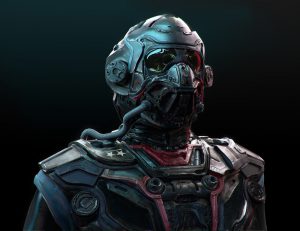 One look at Mr. David Schultz’s works and it is apparent that he has talent. He has an eye for detail and can definitely deliver regardless of the concept and intricacy.
One look at Mr. David Schultz’s works and it is apparent that he has talent. He has an eye for detail and can definitely deliver regardless of the concept and intricacy.
A resident of Durham, North Carolina, Mr. Schultz is a graduate of University of North Carolina at Chapel Hill. Now, he works as Senior Environment Artist at Red Storm Entertainment (Ubisoft).
Being in the Game Development industry for 10 years, Mr. Schultz definitely knows the ropes around the industry and is more than capable of sharing his wisdom.
Xeno Creatives is more than fortunate to have the chance to sit down with the artist to get to know not only of his experiences, but ultimately his views on being in the 3D industry.
Xeno Creativity (XC): ZBrush technology brought a lot to the industry. What processes did you have to learn to be skilled in it?
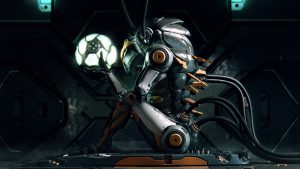 David Schultz (DS): It absolutely has. I was really bad at it in the beginning–really bad. I learned before Dynamesh and it was much trickier to get the fidelity you wanted over the entire surface. However, I do love the freedom and fluidity of ZBrush. The last few releases of ZBrush have had several tools that have impacted my hard surface work: ZModeler, Boolean, lazy mouse guides, the deformers, and Sculptris Pro.
David Schultz (DS): It absolutely has. I was really bad at it in the beginning–really bad. I learned before Dynamesh and it was much trickier to get the fidelity you wanted over the entire surface. However, I do love the freedom and fluidity of ZBrush. The last few releases of ZBrush have had several tools that have impacted my hard surface work: ZModeler, Boolean, lazy mouse guides, the deformers, and Sculptris Pro.
XC: What are specific ZBrush features do you employ in the production of your art? Has it helped you in improving your art better?
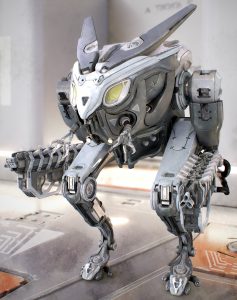 DS: The render Booleans have been huge. In the past, I had to do a lot more masking and pulling-out various areas or using Qmesh from clean topology to get extrusions and non-sculpted cuts. It was much more time sensitive and it was more permanent and harder to change after the fact. Now, I try as much as possible to start out all extrusions and cuts as combinations of Booleans from either primitives I’ve modified or my library of basic cutters. It makes my workflow so much more flexible, because I can go back and resize or change those pieces later very easily.
DS: The render Booleans have been huge. In the past, I had to do a lot more masking and pulling-out various areas or using Qmesh from clean topology to get extrusions and non-sculpted cuts. It was much more time sensitive and it was more permanent and harder to change after the fact. Now, I try as much as possible to start out all extrusions and cuts as combinations of Booleans from either primitives I’ve modified or my library of basic cutters. It makes my workflow so much more flexible, because I can go back and resize or change those pieces later very easily.
XC: How did you start being involved in the digital craft?
DS: In 2001, I graduated from the University of North Carolina at Chapel Hill with a B.A. in French and Philosophy. At that point, I knew I didn’t want to go to graduate school in those areas, and I wanted to get back into art, which had always been my real interest. I tried a lot of things (various fine art endeavors, local indie films, art museums, antiques), but I had a hard time figuring out how I would make a career out of my interests.
In 2004, I met a guy through a friend’s dad who was looking for a storyboard artist. I was not a one, but I tried my best (which wasn’t great) and went in for the interview. He let me work for him as an intern and pretty soon he agreed to teach me Lightwave 3D. I had never even thought about 3D before, but I loved it immediately.
 XC: What do you think is your edge as a 3D artist? What do you think makes you stand out from the rest?
XC: What do you think is your edge as a 3D artist? What do you think makes you stand out from the rest?
DS: Oh, wow. I don’t know if I am better than a lot of artists out there in terms of talent. If there is something that separates me from some, it’s that I am self-motivated and I just keep working. I’ve always put a lot of pressure on myself and had high expectations. Most of the battle is just showing up and then staying with something until it’s completed. I don’t feel like I am there yet, but I feel like my work ethic is gradually starting to push me towards better work. There’s also a certain amount of fearlessness you have to have to keep putting your work out there and letting other people see it with all of its flaws and, hopefully, beauty.
XC: Whom do you do you consider your influence(s)?
DS: I have so many. I’ll name some of my earlier influences in my career to keep the list shorter. Everyone involved in the old Blizzard cinematics (especially, the “StarCraft 2” Space Marine cinematic)- Vitaly Bulgarov, Fausto de Martini, Joe Peterson, and Toni Bratincevic. Furio Tedeschi is always inspiring. He was the first I saw doing the sculpted hard surface look and it just blew my mind.
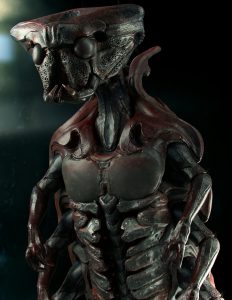 The old Epic Games crew that worked on Unreal Tournament and the Gears series definitely also had a huge influence. I love James Hawkins’ work and there were so many really talented artists involved in those series.
The old Epic Games crew that worked on Unreal Tournament and the Gears series definitely also had a huge influence. I love James Hawkins’ work and there were so many really talented artists involved in those series.
XC: So far, what were the challenges that you had encountered working in the 3D industry?
DS: I do feel lucky to be able to be a part of this industry, but there are many challenges. As a production artist, the biggest challenge is staying relevant—or trying to stay on top of trends both in terms of techniques, tools, and pipelines. It’s just a constant battle. I do enjoy it, but it can be stressful, especially in thinking of your career and long term trends towards automation and increasing outsourcing and how these will affect your job as an artist and game development as a whole.
Dealing with change in general. I like that state of flux, but sometimes it can really dislodge you in a way that is hard to manage. Working on a game can be like trying to build a structure with a lot of people in a river. It’s sort of like it’s a nebulous form with so many variables and unknowns that are constantly moving around and into one another throughout the development of the game. At times, it can be really challenging to find your place in this process (especially on a larger team) and keep your focus on what you need to do to and not get swept away.
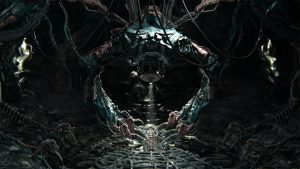 XC: What is your most exciting project to date?
XC: What is your most exciting project to date?
DS: “The Division” was the most fun. We had a really great team as a whole on the project and then at “Red Storm” we had a lot of really talented and smart people and we were really pushing ourselves in terms of quality and tools. It was exciting. I learned a lot and I made my best production work during that period and really felt like I was growing.
XC: Do you have any advice to aspiring artists?
DS: Work hard and don’t make excuses. Making excuses is a bad habit and they are self-destructive.
Being honest with yourself about your failures is the best and quickest way to move forward. Some people genuinely have terrible things happen to them that keep them from accomplishing certain things, but for the most part, especially if you are in a wealthy country, we have so much opportunity and mobility. It is completely up to you what choices you make and what you achieve. If you make good work and can work with other people (i.e., you aren’t a terrible person), you should be able to get a job somewhere.
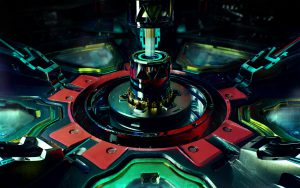 Also, you should look at other people’s work as a quality bar (especially, early on), but don’t beat yourself up if your work doesn’t look like there’s right now or if you haven’t achieved the same things someone else has by a certain point. Everyone has a different path. Learn from other people, but try and figure out who you are supposed to be, what you are supposed to do. It sounds cheesy, but you can only do “you”.
Also, you should look at other people’s work as a quality bar (especially, early on), but don’t beat yourself up if your work doesn’t look like there’s right now or if you haven’t achieved the same things someone else has by a certain point. Everyone has a different path. Learn from other people, but try and figure out who you are supposed to be, what you are supposed to do. It sounds cheesy, but you can only do “you”.
See more of Mr. David Schultz’s works through the following platforms:
https://www.artstation.com/dtschultz
https://www.facebook.com/david.schultz.71
https://www.instagram.com/__david_schultz__/

